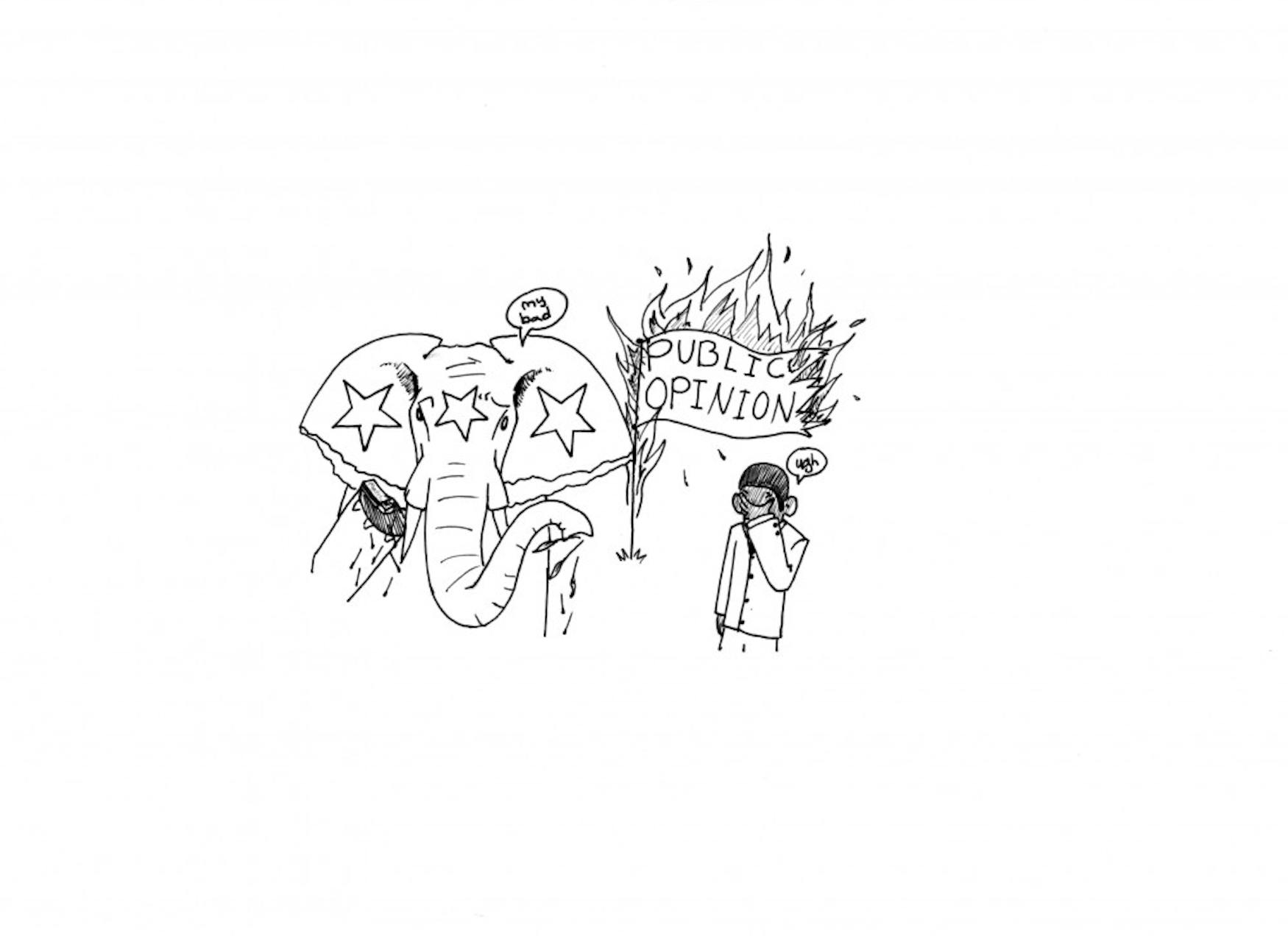Referendums and ballots in midterm elections show liberal victory
“When you play with matches, you take the risk of burning yourself.” Speaker of the House John Boehner issued the preceding warning to President Barack Obama on the Thursday after the midterm elections saw the Republicans take control of both Houses of Congress. It was a warning to Obama to refrain from acting unilaterally by taking executive action to ban deportations of undocumented immigrants.
Boehner and fellow congressional Republicans will soon begin pursuing an agenda which includes tax cuts, reduced government regulation, ending amnesty for undocumented immigrants and approving the construction of the Keystone Pipeline. The midterm elections have given Republicans in Congress a newfound confidence that they will be able to pursue their agenda with more freedom than they had before. However, if Boehner’s aggressive tone is any indication of the way in which the Republicans will act toward the president and toward achieving their agenda, Boehner might be wise to radically change the image that the party has built up for itself over the past four years rather than increase its hostility.
While a superficial look at the midterm results certainly signals an increased popularity of Republican ideas in this country, national exit poll data regarding voters’ opinions on the Republican party and the results of ballot referendums nationwide seem to refute that idea.
According to a poll conducted by ABC News, two-thirds of voters are dissatisfied with Republicans in Congress and six in 10 have qualms with the party in general. Although the poll did not ask for specific explanations, six years of relentless and conspicuous obstruction from Republicans in Congress have likely created a negative image of the party in the minds of the American people.
The results of ballot questions across the country also signal that Americans do not endorse Republican policies as much as it may seem. Voters in Arkansas, Illinois, Nebraska, South Dakota and Alaska all approved increases in the minimum wage, a policy which Republicans certainly do not support, while simultaneously electing Republicans to either the Senate, the Governorship or both.
In Massachusetts, Republican Charlie Baker upset Democrat Martha Coakley in the governor’s race, but voters still overwhelmingly approved the referendum to guarantee paid sick leave for employees, a very progressive cause. Baker supports paid sick leave, although he supports a different plan that would apply to fewer employees.
He may have been pressured to show some support for the cause given that the measure was popular in polls prior to the election. However, Baker is a very moderate Republican in a very Democratic state, and it is unlikely that Republicans in other parts of the country would be willing support such a liberal cause.
In New Mexico, while the Republican candidate for Governor Susana Martinez beat the Democrat Gary King, voters approved three ballot initiatives which authorized the state government to issue general obligation bonds for senior citizen facility improvement, public schools, libraries and post-secondary schools, all of which will be funded by a general property tax. Reducing government spending and cutting taxes have become cornerstones of conservative ideology, and these types of policies run counter to the agenda that Boehner and his colleagues plan to pursue following the elections.
The incongruence between the issues American voters approved and the candidates they supported is a testament to the importance of superficialities and extraneous factors in elections. In a perfect system, voters would vote based solely on the candidates who are running and the positions they stand for.
What we saw in this past election was voters voting for candidates based on irrelevant issues and the president.
Even though the conduct of Republicans has certainly not been popular among Americans, the president is still the most powerful member of the government and is therefore the face of Washington, D.C. dysfunction. According to CBS News exit poll data, over 53% of voters said their views on the president influenced who they voted for in their local elections. Bill Cassidy, the Republican challenger to Senator Mary Landrieu’s seat in Louisiana recently said that “Every week the president does something to help us.” Republicans succeeded in stirring up enough fear and anger around Obama that the elections became a referendum on him more than on the actual candidates on the ballot.
Republicans must realize that in 2016, Democrats could campaign on issues like the federal minimum wage due to its clear popularity across the country. They could also attack Republicans for their part in stagnating the legislative process, an argument which would be greatly bolstered if they continue to do so while having control over both Houses of Congress.
They do not seem to have gotten the message. Boehner and his Republican colleagues in Congress have begun their rule of both Houses in a brash, recalcitrant manner, using threatening language to warn Obama not to pursue any of his goals for the remainder of his tenure.
Similar dispositions lead to Republicans taking a hit in the polls after they shut down the federal government in an unnecessary and counterproductive act of rebellion against the implementation of the Affordable Care Act last year.
Referendum victories for liberal policies and exit poll data showing the pervasive unpopularity of the Republican Party show that the success of the Republicans in the midterm elections was more a result of voters repudiating the president than of voters endorsing Republican ideas.
While it is possible that Republicans will try to make the 2016 election a referendum on Obama as well, if they choose to use the next two years to continue their relentless campaign of delegitimization against the president—which has been shown to be unpopular among Americans—voters will be discontent with both their policies and their conduct come 2016. They must be careful, because they may just be playing with matches.




Please note All comments are eligible for publication in The Justice.